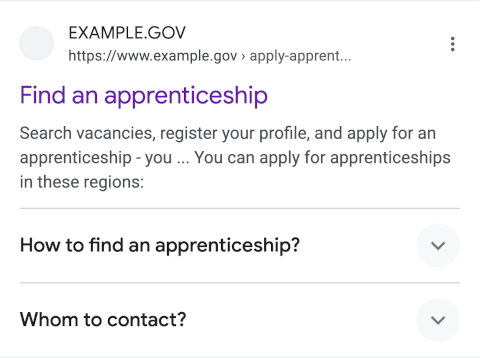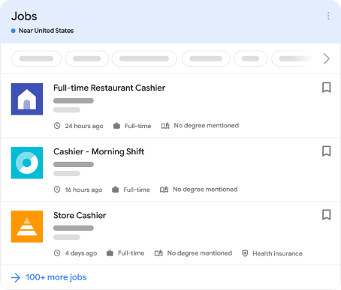To most marketers, code seems like just a boring series of zeros and ones. But appearances can be deceiving, structured data can help you achieve more organic results. That may sound too good to be true, but the results don’t lie! How do you start with this?
What is structured data?
Structured data, known in technical terms as structured datais a piece of code that you can add to your website. This code tells a search engine a little more about the content of your page, so that the search engine better understands what the content on the page is about.
The better the search engine understands the content, the better it is able to show the right results to a specific target group. No ordinary, but ‘rich’ results. This ensures that the attention value of your result increases.
The perfect example of this is websites that publish recipes. By implementing structured data, the search engine suddenly knows much more. Consider:
- Ingredients list
- Preparation time
- Coke
- Temperature
- Number of calories
By adding all this information, your recipe may appear like this in the search engine:
What can structured data bring me?
Quite simply, structured data can give you more organic results. By implementing this you increase the chance of getting a rich result: a result whose attention value is many times higher than with an organic result, or even higher than with a paid result.
According to research by research agency Milestone Research, 41% click on a ‘normal’ organic result and 58% on a rich result. This research is based on more than 4.5 million searches. Right, the numbers speak for themselves.
What does such a rich result look like?
By implementing structured data in the code, you give Google the opportunity to show a rich result. Such a rich result comes with a lot of possibilities; the tech giant itself speaks of it 35 different features. To give you a good idea of the possibilities, some examples are given below.
Popular products

More to ask

Vacancies

How can I implement structured data?
In most cases we have to rely again on our fantastic colleagues on the development team. The code must be implemented correctly in the background of the website; Google offers here guidelines before, and with the Rich Result Test you can even check if the code is implemented correctly. However, even well-implemented code does not guarantee a rich result.
This is an example of structured data:
{
“@context”: “
“@type”: “FAQPage”,
“mainEntity”: ({
“@type”: “Question“,
“name”: “How to find an apprenticeship?”,
“acceptedAnswer”: {
“@type”: “Answer”,
“text”: “
We provide an official service to search through available apprenticeships. To get started, create an account here, specify the desired region, and your preferences. You will be able to search through all officially registered open apprenticeships.
”
}
}, {
“@type”: “Question”,
“name”: “Whom to contact?”,
“acceptedAnswer”: {
“@type”: “Answer”,
“text”: “You can contact the apprenticeship office through our official phone hotline above, or with the web-form below. We generally respond to written requests within 7-10 days.”
}
})
}
Google indicates in the documentation which data is required, recommended or optional. The advice is to always be as complete as possible: the more signals, the better the search engine understands it. On the website you will find more information that can be added.
Plugins
Plugins may come in handy when you don’t have the capabilities or resources for a developer. In some CMS systems you can use plugins. Such a plugin ensures that the structured data is placed on the website. But keep in mind that an extra plugin will be installed, which can affect the operation of the website in the background.
Two specific examples for a WordPress CMS are Schema in Schema – All In One Schema Rich Snippets. Both plugins are free and all basic schemes are available. At Schema you can choose to upgrade the package. In that case, many more schemes become available and you can use many more features. This way you can send more signals to the search engine.
Just start
I know from experience that it can be very difficult to convince an organization of the use of structured data. Costs have to be incurred without it being completely clear what the return on investment will be. As a result, the budget is often spent earlier on channels where the results are more concrete.
But if SEO is on your agenda, you want to work on the long-term strategy and have a healthy channel distribution, then it is certainly advisable to implement structured data correctly. And so just start with it.
Source: www.frankwatching.com


